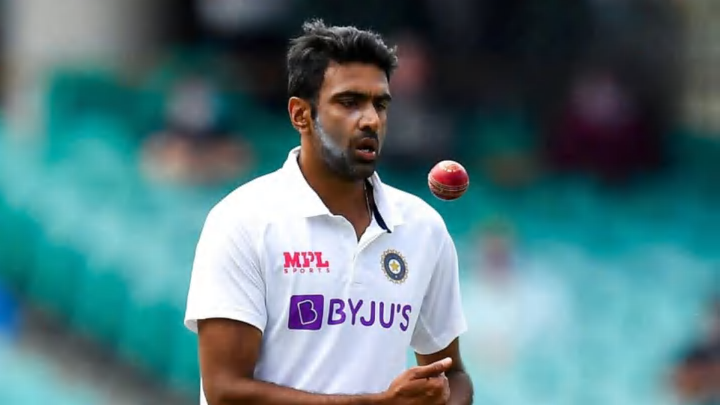Indian Spinner Ravichandran Ashwin Takes Aim at Unfair Return of RTM

By Priscilla Rotich
Indian cricketer Ravichandran Ashwin expressed his disapproval of the potential reintroduction of the Right to Match (RTM) rule during the upcoming Indian Premier League (IPL) auction, scheduled for the end of this year.
In August, the Board of Control for Cricket in India (BCCI) held discussions with the owners of the league's ten franchises to consider various aspects before finalizing the IPL player regulations.
According to a report, key topics of the meeting included the possibility of holding a mega auction every five years instead of the current three, reinstating the right-to-match (RTM) card option at auctions, addressing the availability/shortage of overseas players, and setting a limit on the total number of retentions.
The RTM rule allows teams to retain a player from the previous season by matching the highest bid placed by another franchise. While this rule has been used to secure valuable players in the past, it was omitted from the 2021 mega auction to provide the then-new franchises, Gujarat Titans (GT) and Lucknow Super Giants (LSG), with a wider player selection.
During a discussion on his YouTube channel, Ashwin voiced his belief that the rule unfairly undervalues a player and does not offer them fair treatment.
"There is no rule more unfair for a player than RTM. Because how has the RTM rule been so far? For example, there is a player called X. He is on a team called, let us say, Sunrisers. His current value is around Rs five-six crores. He has gone into the auction. Now say Sunrisers want to buy the player back. So, the Sunrisers will bid for the player at a base price of 2 crore," said Ashwin.
He went on to say: "Then, let us say, KKR and the Mumbai Indians are bidding for the player. The bid goes up to 6 crores and finally, they say, 'The player is sold to the Mumbai Indians for 6 crores.' So, with RTM, the Sunrisers will then bid for and take the player at 6 crores.”
“The problem here is that Sunrisers are happy. But KKR and MI are unhappy. The only person (party) happy is Sunrisers. Because, in the beginning, they gave attendance bid at base price," added Ashwin.
The ace-spinner expressed his dissatisfaction with the RTM system, stating that it does not provide fair compensation for the players.
According to him, after the bidding process, one of the teams engaged in a heated battle, with the player's value reaching up to six crores.
He emphasized the unfairness by comparing the bidding amounts of the two teams and stressed the need to establish a fair value for the player. He also highlighted the issue with RTM, stating that it does not ensure fair compensation for the players, especially if each team is given three RTMs, leaving the players with minimal benefits.
